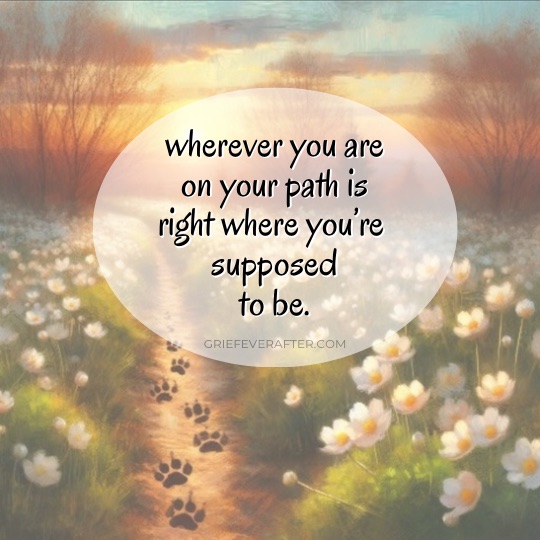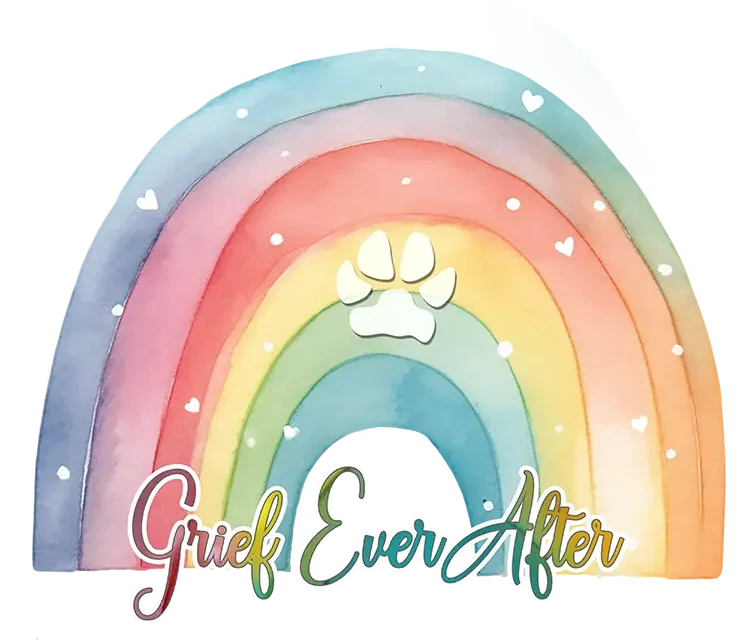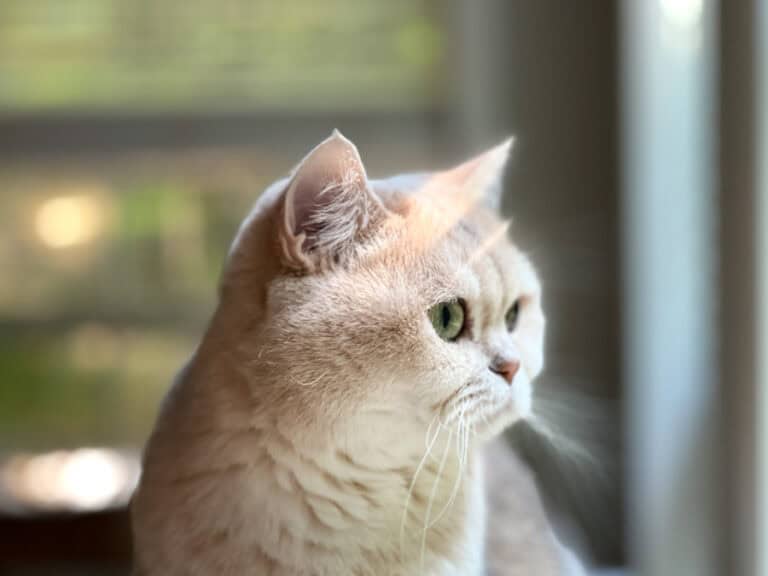Feeling Stuck in Grief After Pet Loss? Six Tools To Feel Unstuck
It goes without saying that after pet loss, grief is not linear or orderly. It’s a messy journey that can take time to process and heal through. A long journey that can sometimes lead to feeling like you’re stuck in grief.
As humans, it’s likely not that often where we are living in such deep sadness for a prolonged period of time. It’s uncomfortable, unfamiliar, and can be unrelenting. The pressure, both from others and often from within, to swiftly move forward through grief, feels like an overwhelming load to bear on top of the heaviness of grief.
There is no magical recipe to working through grief. It’s finding your balance (not anyone else’s) of actively mourning, resting when needed, reengaging in life, and learning to live with the love left behind.
But how? Let’s talk about six ways that we can see grief for what it is – a long damn road.
Accepting Where You Are
The uncomfortability of grief can be so overwhelming you just simply want to be on the other side of it.
While one part of your brain is saying “Make this grief stop” another part of your brain is holding on to grief tightly because it feels like that is where your connection to your pet is now.
It can feel like quicksand that you may never pull yourself out of. The more you fight, the more stuck you feel.
The paradox of feeling stuck is that accepting that where you are is where you’re supposed to be, can actually free you from feeling stuck. Stuck implies there is some type of timeline of grief. A timeline your grief is being measured against. And that you’re failing.
Embracing where you are in your grief accepts that grief evolves organically and trying to rush it, push it, or measure it becomes counterproductive.
Choose to be Active within Your Grief, Even When It’s Hard
When your grief is new and raw it’s important to be gentle with yourself. Survival is the most important thing. As grief evolves, your effort will need to evolve too.
The fact that grief takes work can be tough to accept. Usually when we are working at something it’s something we want to be good at — like hobbies, relationships, and careers.
I don’t think anyone starts off aspiring to be good at grief. But, here we are.
Actively mourning in grief is what helps you move forward. Not in a ‘checklist/almost done’ type of way, but in a way that helps you reinvest in life while learning to connect with your pet in a different way.
This part can be hard. Sometimes you want to avoid active mourning as it feels difficult because of the sadness. But actively grieving and cultivating what you want life to look like now can soften sadness and pain. It’s hard to believe that grief isn’t always defined as unrelenting pain.
Does this mean force yourself to your limit every day? Definitely not. But don’t be afraid to make small grief goals and push yourself a bit.
Don’t Compare Your Grief To Other Grief
There is a saying attributed to Theodore Roosevelt, “Comparison is the thief of joy.” While there may not be an abundance of joy when you’re grieving, comparison can certainly be the thief of compassion.
Your journey is yours and should not be measured against anyone else’s. It shouldn’t even be compared to your own previous experiences with grief. You’ve never been this you, right now, grieving this sweet perfect being whom you’ve shared this bond with.
Needless to say, your grief is unique.
Your life is also unique. It’s easy to ruminate on comparing how different life is now that your beloved pet is not with you. It is true, life has changed. That doesn’t mean that someday it won’t be good in its own way again.
If you find yourself going into comparison mode, consider reframing those thoughts. Instead of comparing, recognize that differences are a hallmark of life experiences and comparison may not serve a purpose.
You may have now lived through the best chapter in life, thus far. But like books, future chapters are strongly influenced by the best one, and that is how a life story is written.

Don’t Judge Yourself
Self judgment is a skill we learn throughout life. But no better time to be less judgmental and more kind to yourself than when you’re grieving.
In grief, others in your life can provide enough judgment to go around. You don’t have to jump on that train too.
Am I grieving too slowly? Is it normal to still feel so sad after (“x”) amount of time? There must be something wrong with me if I still can’t function like I was before.
Self judgment can be a tricky little bugger. It can lead to some isolation and generally feeling misunderstood. It’s a vulnerable place, to feel like you’re not doing grief right and be anxious that others will think the same thing and judge you too.
Don’t mistake sadness or grief for weakness.
You are living through a significant and complicated loss. Now is the time to drum up the self-kindness you deserve.
Talk About It – In Your Own Way, With Safe People
Another vulnerability. Talking about your grief can feel like you’re putting your heart and soul out there for someone to criticize. Will they think I’m crazy for being so distraught over my pet? How will I try to explain it? What if they say something that hurts and that I don’t want to hear.
Find your grief people. People in the world who get it. And sometimes, these grief people are not people you already know.
A friend, a support group, an online support page, a coach, a wonderful therapist. There are healthy places to find support.
Verbally expressing your pain, including the ‘stuckness’ of grief, can give it a little less power. It’s a practice in feeling like you’re taking control back of your journey. (btw – you were never not in control).
Talking about grief, loss, and your pet is the only tool in healing through grief that will always be helpful. Even if you’re an introvert and your communication style is most comfortably through a keyboard, you still need space to name and claim everything you’re going through.
Practice Intentional Self Compassion
A wounded heart requires a gentleness and compassion that we very often have for others. Giving it to yourself can feel strange. It needs to be intentional because self compassion doesn’t bubble up to the surface enough. It doesn’t always organically happen.
Consider how you would support your best friend in the world through their grief. Would you say, “I feel like you’re dragging this out”? Of course not!
Give it a shot. How would you support your best friend, sister, child, parent? The understanding and empathetic you would say, “I’m here for you.” Don’t forget to be there for yourself too.
When you enter your grief journey, there are a few things that you don’t receive. You don’t get a roadmap, a deadline, or a crystal ball.
Grief can be about muddling through murky water for a while. Making your own map, in your own time and slowly writing the next chapter.






